In the Netherlands, dairy farming is an important agricultural industry. The country is home to many dairy farms producing various products, including milk, cheese, and butter. Farmers in the Netherlands have to meet strict environmental standards, which requires them to invest in measures such as methane digestion and rainwater harvesting. These investments help to make Dutch dairy farming more sustainable and environmentally friendly.
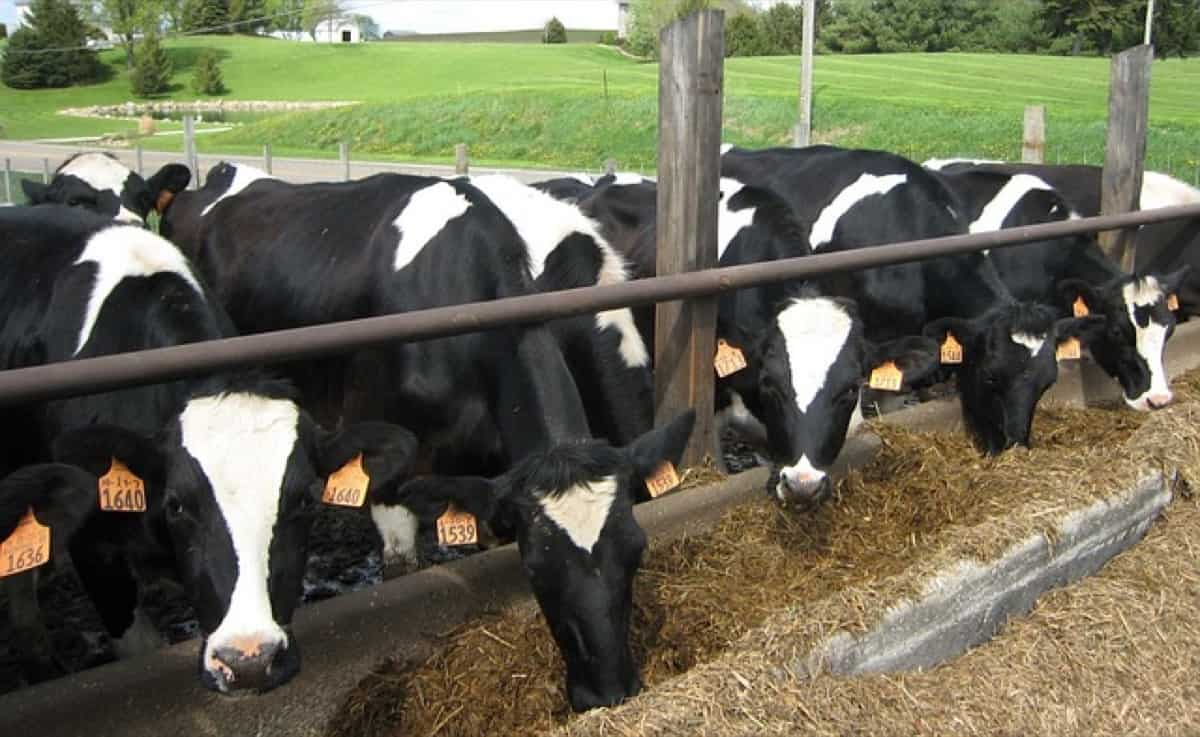
Dairy farming in the Netherlands has a long history and is an important part of the country’s agricultural industry. The Dutch dairy sector is highly efficient and technologically advanced, producing high-quality milk products that are exported all over the world.
How to start dairy farming in the Netherlands
What is dairy farming in the Netherlands?
Dairy farming in the Netherlands has a long history and is an important part of the country’s economy. The Netherlands is one of the world’s leading exporters of dairy products, and Dutch dairy farms are known for their high animal welfare standards. In addition, most Dutch dairy farms are family-run businesses, and many have been passed down through generations.
As a result, dairy farming is a method of life for many Dutch families, and the close connection between people and their animals makes Dutch dairy farms so special. The Netherlands has a temperate climate, which is perfect for growing grass. This means that Dutch dairy cows spend a lot of time outdoors grazing on fresh grass, which helps to keep them healthy and happy. As a result, Dutch dairy cows are some of the best-fed cows in the world.
They are fed a diet of mostly hay and grass, with some supplemental grains. This diet helps to produce milk that is high in quality and nutritious. Dairy farms in the Netherlands are highly efficient, using state-of-the-art technology to help produce milk safely and efficiently. The Dutch dairy industry is also well-regulated, ensuring that all farms meet strict animal welfare, food safety, and environmental protection standards.
In case you missed it: How to Start Dairy Farming in Nigeria: Business Plan, Breeds, Cost, Profit, and Schemes
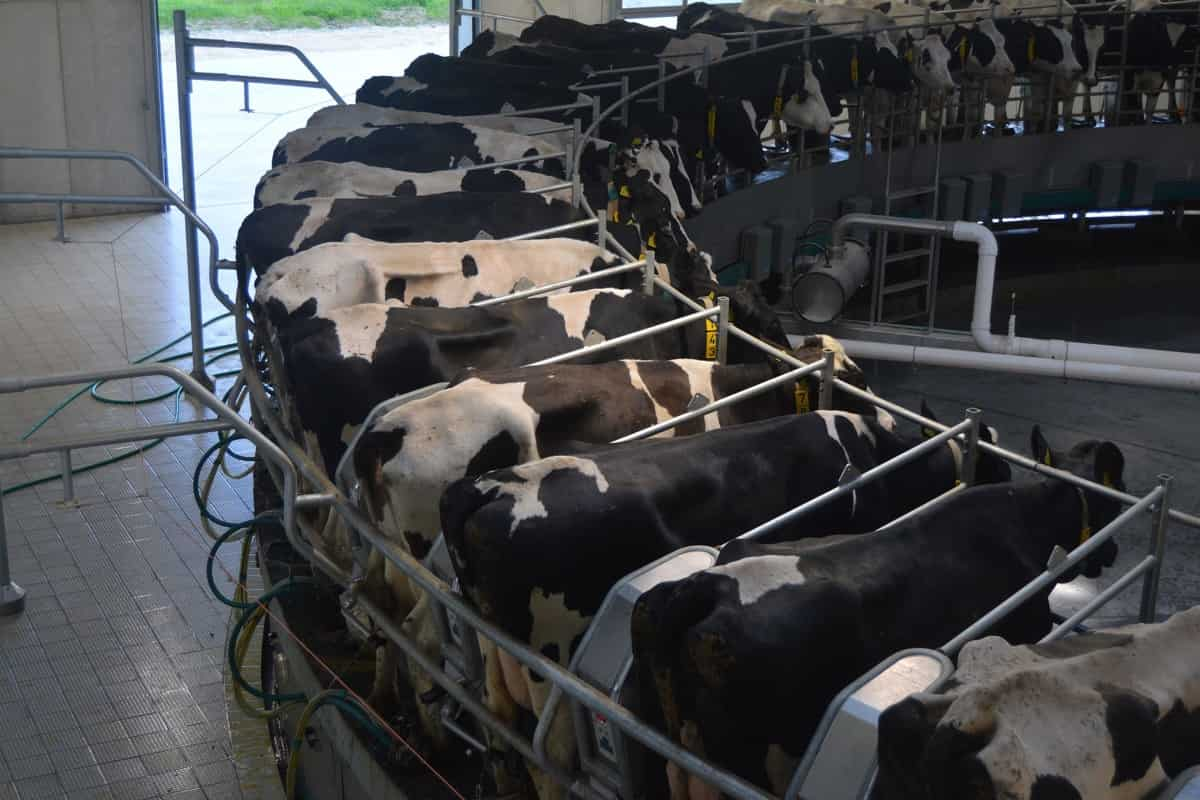
Specialized dairy breeds in the Netherlands
To meet the demands of the market, Dutch dairy farmers have developed a wide range of specialized dairy breeds. These breeds have been selected for their ability to produce milk with high fat and protein levels. Dutch dairy farmers use a variety of management practices to produce milk that meets the stringent quality requirements of the market. They employ strict hygiene protocols and use modern milking facilities and equipment. To ensure the safety of their products, Dutch dairy farmers test their milk regularly for bacteria and other contaminants.
The Dutch dairy industry is world-renowned for its high animal husbandry and milk production standards. Dairy farms in the Netherlands are typically large operations, with many cows being kept under intensive conditions. This allows for a high level of efficiency and output, with Dutch dairy farms producing some of the highest-quality milk in the world. The Netherlands is home to several dairy breeds, including the Holstein, Jersey, and Dutch Friesian.
- The Holstein is the most common breed in the country, making up around 60% of the dairy cattle population.
- Jersey is the second most popular breed, accounting for around 20% of dairy cows.
- The Dutch Friesian is the third most common breed, making up around 15% of dairy cows. However, there are also several other less common dairy breeds in the Netherlands, such as the Ayrshire, Guernsey, and Milking Shorthorn.
Some other important dairy breeds are;
- Holstein Friesian cattle
- Lakenvelder cattle
- Meuse-Rhine-Issel
- Blaarkop
- German Black Pied cattle
- Boškarin
Dairy production systems in the Netherlands
The Netherlands is one of the world’s leading exporters of dairy products, and the Dutch dairy sector is known for its high-tech and efficient production methods. There are three main types of dairy farms in the Netherlands: intensive (or “factory”) farms, extensive (or “grassland”) farms, and mini-dairies.
In case you missed it: Dairy Farming Loan in India: Benefits, Banks, Interest Rate, Documents, and NABARD
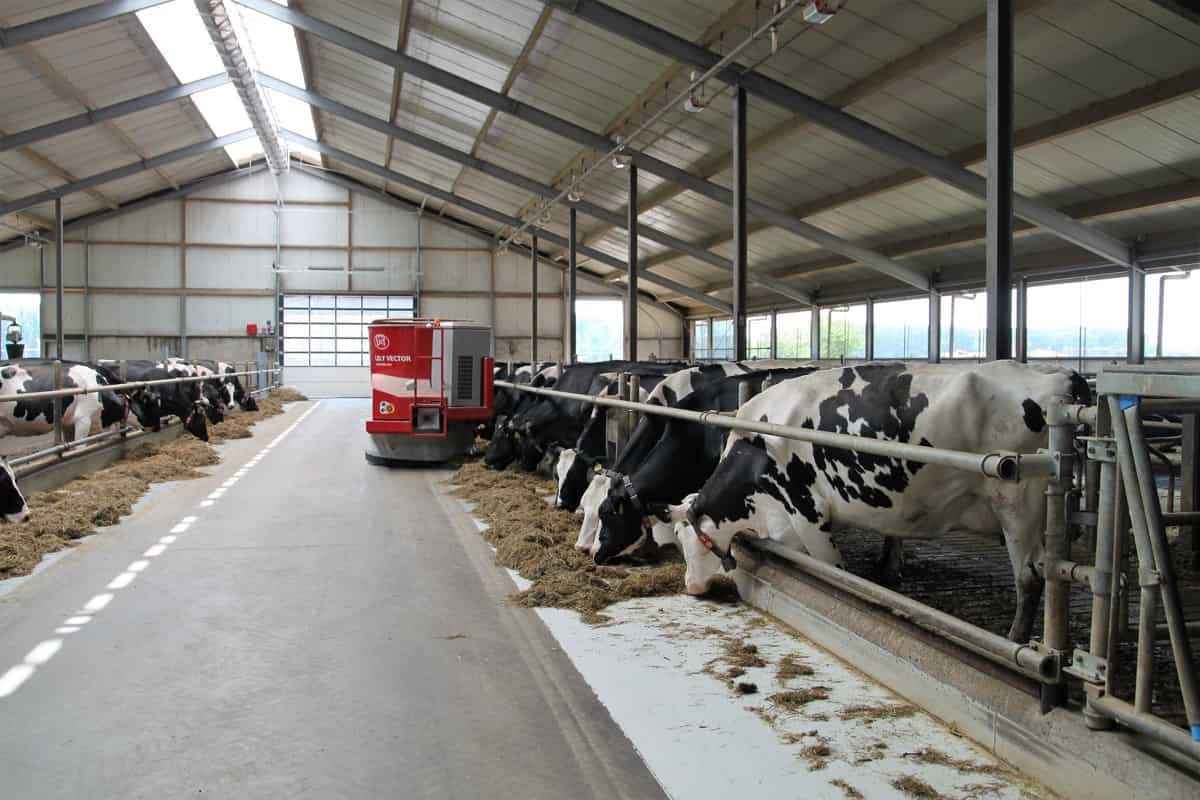
- Intensive dairy farms are typically large operations with hundreds of cows. Cows are kept indoors year-round and are fed a carefully controlled diet of grains, hay, and other supplements. In addition, these farms use modern milking machines and other technological innovations to maximize milk production. Intensive dairy farms are large operations that use modern technology and methods to produce high yields. These farms typically have hundreds or even thousands of cows and produce most of the country’s milk.
- Extensive dairy farms are smaller operations with fewer cows. Cows graze on grassy pastures for most of the year, supplemented with hay during winter. As a result, farms rely more on traditional methods, such as hand-milking and grazing. Extensive dairy farms are smaller operations that use less intensive methods and technologies. As a result, they often have fewer cows
- Mini-dairies are the smallest type of dairy farm, typically having only a few dozen cows. These farms tend to be more environmentally friendly than larger operations since they generate less waste and have lower emissions.
Dairy farming importance in the Netherlands
- The Netherlands is one of the world’s leading dairy farming countries, with a long history of producing high-quality milk products. The Dutch dairy sector is known for its innovative approach to sustainable farming practices and its dedication to animal welfare.
- The Netherlands has a strong tradition of family-run dairy farms, with many farmers passing their farms down through the generations. As a result, Dutch dairy farmers are highly efficient and produce milk using some of the world’s most advanced technology and equipment.
- Due to the Netherlands’ relatively small land area, Dutch dairy farmers have had to develop intensive farming methods to succeed. This has a high level of innovation in the Dutch dairy sector, with many farmers adopting cutting-edge technologies and practices to maximize production.
- There has been a growing focus on animal welfare within the Dutch dairy industry. As a result, farmers have made significant progress in reducing stress levels for cows and ensuring they have access to ample grazing areas and comfortable housing. The Netherlands is home to around 4,000 commercial Dairy farms, producing over 14 billion liters of milk annually.
Opportunities for dairy production in the Netherlands
- The Netherlands has a large population and a high demand for dairy products. Therefore, there are opportunities for dairy farmers to produce milk, cheese, butter, and yogurt for the Dutch market. There are also opportunities to export dairy products to other European countries.
- The Netherlands has a long tradition of dairy farming and is known for its high-quality milk and cheese. Dutch dairy farmers are efficient producers and have access to the latest technology and management practices. As a result, the Netherlands is one of the world’s leading exporters of dairy products.
- The climate is well suited for grass-based dairy production. The Netherlands has more than enough land area for pasture and hay production.
- The Dutch government offers financial support for farmers who want to expand their operations or switch to organic production. There are also programs to help young farmers get started in the business.
- The Netherlands has a strong infrastructure for agriculture, including an extensive network of roads, railways, and canals. This makes it easy to transport milk and other dairy products to processing plants and markets both within the country and abroad.
- Dutch consumers are among the biggest buyers of cheese in the world, and they prefer high-quality products.
In case you missed it: Dairy Farming in Germany: Breeds, and How to Start
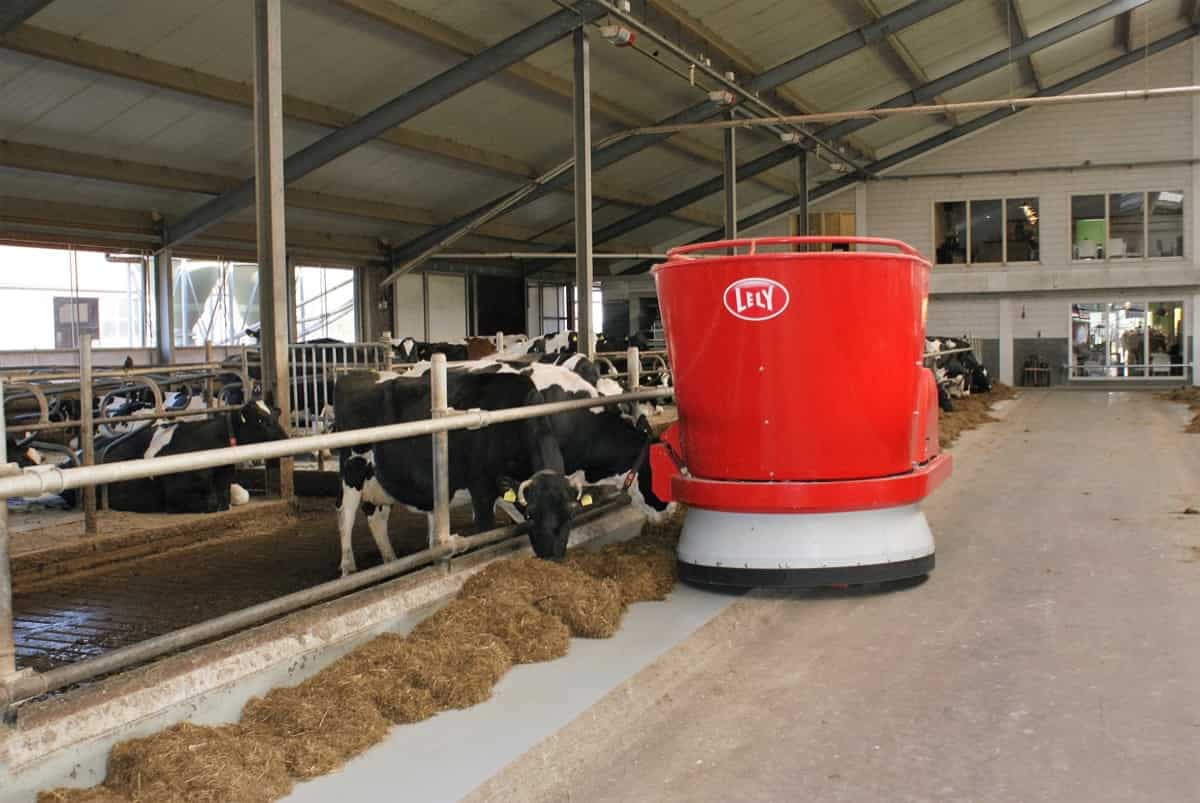
Steps to start a dairy farming business plan in the Netherlands
Choose a location for your farm
The location of your farm will impact various factors, such as land costs, labour availability, and transportation costs. Therefore, it’s important to consider these factors when selecting a location for your farm. Once you have obtained your permit and found suitable land, you must purchase some dairy cows. The Netherlands has a variety of breeds of dairy cows, so it is important to do some research to find the best breed for your needs.
Obtain the necessary permits and licenses
Before starting your farm, you’ll need to obtain proper permits and licenses from the Dutch government. This includes a business permit, an environmental permit, and a license to operate a dairy farm. First and foremost, you will need to obtain a permit from the Dutch Ministry of Agriculture and Food Quality.
This permit is required for all commercial farms, regardless of size or type. Once you have obtained your permit, you will need to find suitable land to build your farm. The Netherlands has strict regulations regarding agricultural land, so it is important to consult with local authorities before purchasing any property.
Purchase dairy cows
After acquiring farmland, you will need to purchase dairy cows. It is important to select cows that are well-suited to the climate and conditions on your farm. You will also need to purchase equipment for milking and caring for the cows and supplies for feeding and housing them.
Purchase the necessary equipment
After purchasing your cows, you will need to build housing for them and purchase the necessary equipment for milking and feeding.
Registration for your business
The final step in setting up your dairy farm is registering it with the Dutch Chamber of Commerce. This registration is required for all businesses in the Netherlands, and it will allow you to start operating your farm legally.
Dairy farm problems in the Netherlands
Dairy farming in the Netherlands has been facing several challenges in recent years. One of the biggest problems has been the declining milk price, which has led to farmers struggling to make a profit. In addition, there have been increased costs, such as for animal feed and veterinary care. The Dutch government has introduced several measures to try and help dairy farmers, but these have not had a significant impact so far. As a result, many farms are going out of business, and the industry’s future is uncertain.
In case you missed it: Dairy Farming in Poland: Breeds, How to Start
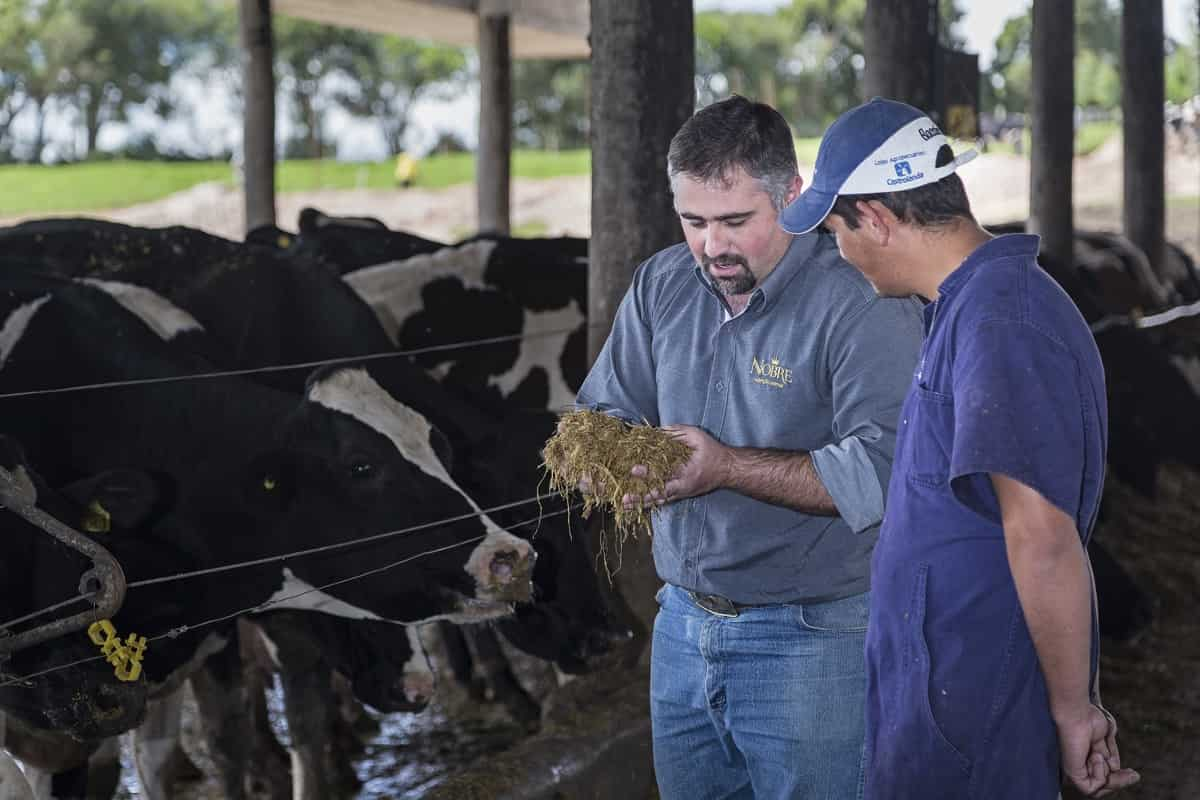
Dairy farming loans and subsidies in the Netherlands
- The Dutch government offers a variety of loans and subsidies to encourage dairy farmers to set up or expand their operations. For example, the Dairy Farming Investment Scheme offers loans of up to €1 million for investment in new dairy farms or expanding existing ones. The interest rate on these loans is 1% below the market rate.
- The government also provides subsidies for purchasing dairy cows, heifers, and calves. These subsidies are available to both new and experienced farmers. The maximum subsidy per animal is €700 for a cow, €400 for a heifer, and €250 for a calf.
- In addition, the government offers several tax breaks for dairy farmers. For example, they can claim back VAT on purchases of fodder, livestock, and equipment. They also benefit from reduced rates of income tax and social security contributions.
Tips to start dairy farming in the Netherlands
- Decide what type of dairy farming you want to do.
- Research the costs and requirements for starting a dairy farm in the Netherlands.
- Choose a location for your farm.
- Obtain the necessary permits and licenses.
- Build or purchase the necessary buildings and equipment for your farm.
- Procure dairy cows from a reputable breeder.
- Hire experienced workers to help run your farm.
- Develop a marketing plan to sell your milk and other dairy products.
- Implement strict biosecurity protocols on your farm to protect your cows from disease.
Dairy farming areas in the Netherlands
Dairy farming is an important agricultural sector in the Netherlands, with many dairy farms located in the country’s productive farmland areas. The main dairying regions in the Netherlands are Zeeland, North and South Holland, and Flevoland. These areas have large areas of flat land and good access to water resources, making them ideal for dairy production.
Is dairy farming profitable in the Netherlands
Yes, dairy farming is profitable in the Netherlands. Many factors make it a profitable business, such as the climate is well-suited for dairy production and there is strong demand for dairy products. The government also provides financial support to farmers, which makes it easier for them to invest in the business.
Rules for starting your dairy farm in the Netherlands
Designing a dairy farm in the Netherlands requires understanding the country’s rules and regulations. The first step is to obtain a permit from the Agriculture Ministry, Nature, and Food Quality. Next, you must create a business plan and submit it to the Dutch Dairy Board. Once your dairy farm is approved, you must purchase cows, build housing, and create a milking facility. You will also need to obtain insurance and hire employees. Finally, you must register your dairy farm with the Chamber of Commerce.
Dairy farm set-up cost in the Netherlands
Starting a dairy farm business in the Netherlands can be a costly endeavor. There are different factors to consider when budgeting for your start-up costs, including the price of land, the cost of buildings and infrastructure, and the price of livestock. Therefore, if you plan to start a dairy farm in the Netherlands, it is an important factor in these costs before making any final decisions.
The cost of building a dairy farm will also vary depending on the size and scope of the project. For example, a small dairy farm with just a few cows could cost as little as €50,000 to build, while a large commercial dairy operation could cost upwards of €5 million. Therefore, it is consulting with an experienced contractor before beginning any construction project to get an accurate estimate of all associated costs.
In case you missed it: 19 Key Rules for Effective Dairy Farm Management: From Planning to Reduce Production Cost
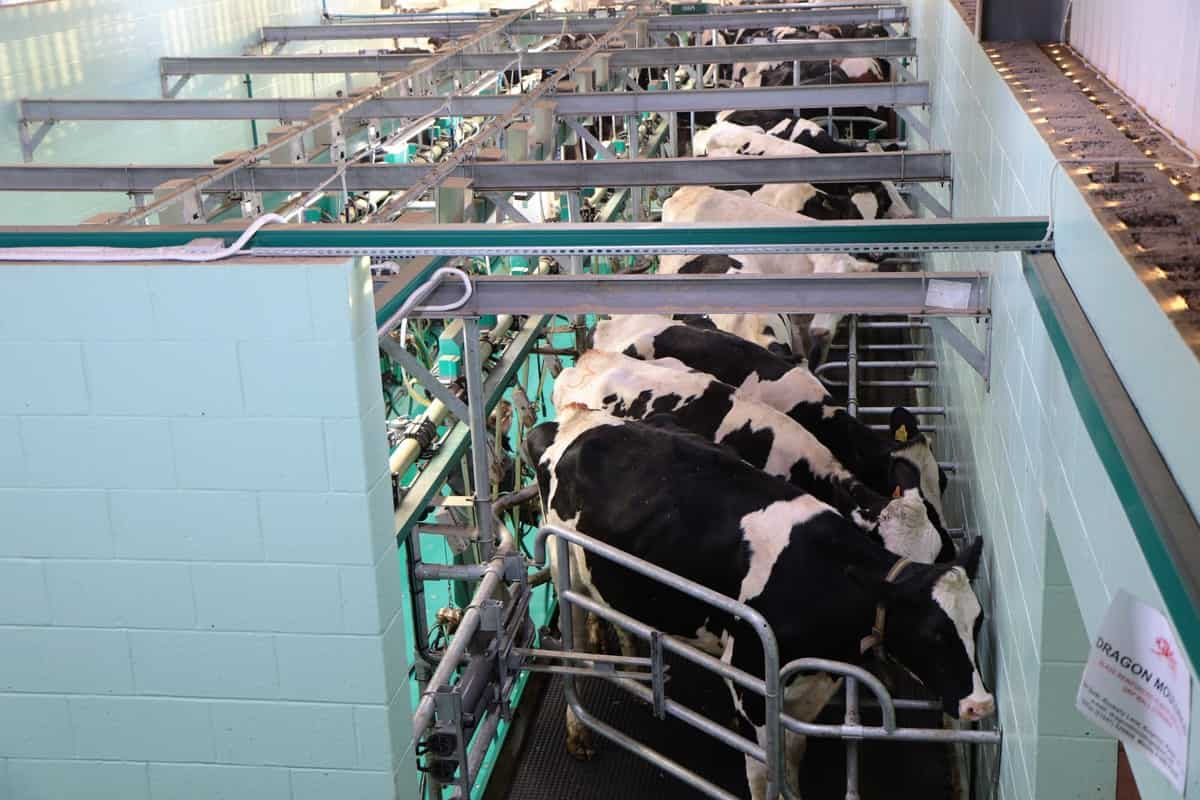
Challenges of dairy farming in the Netherlands
- Dairy farming in the Netherlands is a highly mechanized and efficient industry, producing a wide variety of dairy products for domestic and international markets. However, Dutch dairy farmers face several challenges, including volatile milk prices, rising production costs, and strict environmental regulations.
- Environmental regulations are also becoming increasingly stringent in the Netherlands. Dairy farmers must adhere to strict rules regarding manure management, water use, and emissions from livestock buildings. This can add significant costs to operations, making it even more important for farmers to find ways to improve efficiency.
- Dutch dairy farmers have some of the world’s highest production costs. This is mainly due to several factors, including the high cost of land, labour, and feed.
- The Netherlands is a small country. This means stiff competition from other countries, particularly those with larger populations and cheaper production costs.
- There is increasing pressure on the Dutch dairy industry to become more sustainable in terms of environmental and animal welfare concerns. As a result, farmers are asked to do more with less, which can be challenging.
- Despite these challenges, there are still many opportunities for the Dutch dairy sector. The country has a strong tradition of dairy farming and is home to some of the world’s leading companies in the industry. In addition, the Netherlands has a favorable climate for dairy production and is well-connected to international markets.
Conclusion
Dairy farms in the Netherlands are some of the most efficient in the world. The Dutch dairy sector is highly competitive, with many farmers using innovative techniques to increase output. The country has a long tradition of dairy farming, and its high-quality products are exported to countries worldwide. The Netherlands is well known for its high-quality dairy products.
- How to Make Houseplants Bushy: Effective Tips and Ideas
- Innovative Strategies for Boosting Coconut Pollination and Yield
- Pollination Strategies for Maximum Pumpkin Yield
- The Complete Guide to Chicken Fattening: Strategies for Maximum Growth
- Natural Solutions for Tulip Problems: 100% Effective Remedies for Leaf and Bulb-Related Issues
- Revolutionizing Citrus Preservation: Towards a Healthier, Greener Future
- Natural Solutions for Peony Leaf and Flower Problems: 100% Effective Remedies
- Maximizing Profits with Avocado Contract Farming in India: A Comprehensive Guide
- Natural Solutions for Hydrangea Problems: 100% Effective Remedies for Leaf and Flowers
- The Ultimate Guide to Choosing the Perfect Foliage Friend: Bringing Life Indoors
- From Sunlight to Sustainability: 15 Ways to Use Solar Technology in Agriculture
- The Ultimate Guide to Dong Tao Chicken: Exploring from History to Raising
- The Eco-Friendly Makeover: How to Convert Your Unused Swimming Pool into a Fish Pond
- Mastering the Art of Delaware Chicken Farming: Essentials for Healthy Backyard Flocks
- 20 Best Homemade Fertilizers for Money Plant: DIY Recipes and Application Methods
- How to Craft a Comprehensive Free-Range Chicken Farming Business Plan
- Brighten Your Flock: Raising Easter Egger Chickens for Beauty and Bounty
- How to Optimize Your Poultry Egg Farm Business Plan with These Strategies
- Subsidy for Spirulina Cultivation: How Indian Government Schemes Encouraging Spirulina Farmers
- Ultimate Guide to Raising Dominique Chickens: Breeding, Feeding, Egg-Production, and Care
- Mastering the Art of Raising Jersey Giant Chickens: Care, Feeding, and More
- Ultimate Guide to Raising Legbar Chickens: Breeding, Farming Practices, Diet, Egg-Production
- How to Raise Welsummer Chickens: A Comprehensive Guide for Beginners
- How to Protect Indoor Plants in Winter: A Comprehensive Guide
- Ultimate Guide to Grow Bag Gardening: Tips, Tricks, and Planting Ideas for Urban Gardeners
- Guide to Lotus Cultivation: How to Propagate, Plant, Grow, Care, Cost, and Profit
- Agriculture Drone Subsidy Scheme: Government Kisan Subsidy, License, and How to Apply Online
- Ultimate Guide to Raising Araucana Chickens: Breed Profile, Farming Economics, Diet, and Care
- Bringing Hydroponics to Classroom: Importance, Benefits of Learning for School Students
- Ultimate Guide to Raising Polish Chickens: Breed Profile, Farming Economics, Diet, and Care
- Ultimate Guide to Raising Australorp Chickens: Profile, Farming Economics, Egg Production, Diet, and Care
- Silkie Chicken Farming: Raising Practices, Varieties, Egg Production, Diet, and Care
- Sussex Chicken Farming: Raising Practices, Varieties, Egg Production, Diet and Care
- Homemade Feed Formulations for Livestock: Discover Cost-effective Starter to Finisher Feed Recipes
- 20 Best Pig Weight Gain Supplements: Top Swine Weight Gain Formulas
- Ultimate Guide to Elderberry Farming: Propagation, Planting, Yield, Cost, and Profit